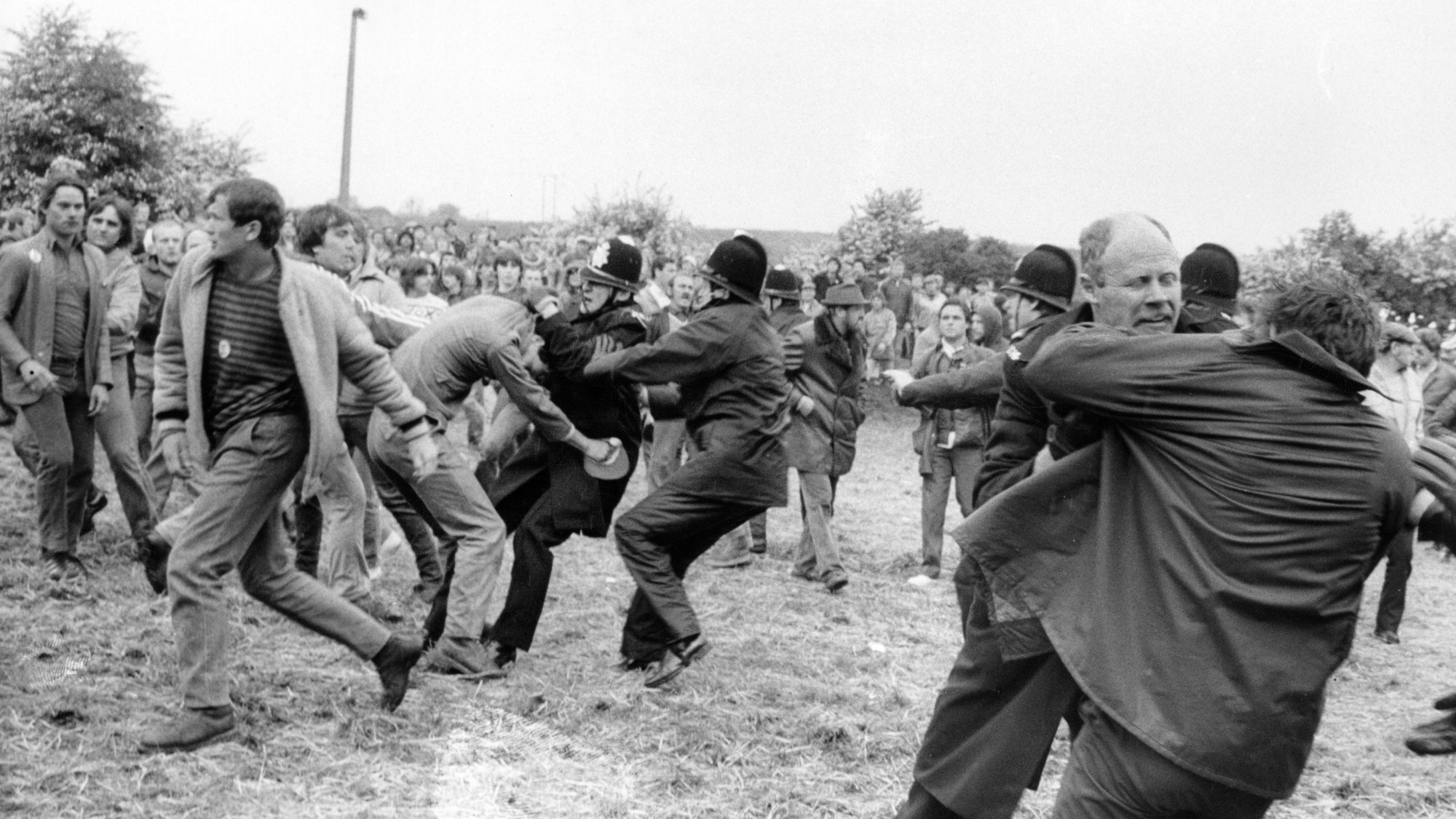The 'two-tier justice' row
Sentencing Council delays new guidance after backlash from both Labour and Tories about bias

A free daily email with the biggest news stories of the day – and the best features from TheWeek.com
You are now subscribed
Your newsletter sign-up was successful
"Today was very nearly what the Tories were calling 'two-tier Tuesday,'" said Politico.
The Sentencing Council's updated guidelines for judges and magistrates in England and Wales, due to come into force today, advised courts to "normally consider" pre-sentence reports before sentencing people from 10 categories – including women and those from ethnic or religious minorities.
But after widespread criticism from both Labour and the Conservatives – with accusations of "two-tier justice" – the justice secretary demanded that the independent body U-turn on its guidance, and introduced emergency legislation to overrule it. Despite initially standing firm, the Sentencing Council "caved to government pressure" last night, said Politico, and suspended the guidance while Shabana Mahmood's bill is considered.
The Week
Escape your echo chamber. Get the facts behind the news, plus analysis from multiple perspectives.

Sign up for The Week's Free Newsletters
From our morning news briefing to a weekly Good News Newsletter, get the best of The Week delivered directly to your inbox.
From our morning news briefing to a weekly Good News Newsletter, get the best of The Week delivered directly to your inbox.
What are pre-sentence reports?
They provide courts with information about an offender's background and the circumstances surrounding the crime. Compiled by the Probation Service, the reports include a sentencing recommendation that "takes these factors into account, alongside the seriousness of the offence", said Daniel Alge, a senior lecturer in criminal justice, on The Conversation. But crucially, the judge or magistrate is "not bound by the recommendation".
Previously, pre-sentence reports were advised if the court was deciding between a community order or custody. The new guidance, published by the independent body this month after a consultation last year, included a revised list of the types of offender for whom a pre-sentence report might be particularly important.
Reports "will normally be considered necessary" for offenders in one of 10 cohorts, it said: women; a young adult; a sole or primary carer for a relative; a victim of domestic abuse; a victim of trafficking; an addict; someone suffering a serious chronic medical condition; and someone from an ethnic minority, cultural minority or faith minority.
What was the council's thinking?
"You are more likely to receive a custodial sentence if you are from an ethnic minority group, even after controlling for various offender and case characteristics," said Stephen Bush in the Financial Times.
A free daily email with the biggest news stories of the day – and the best features from TheWeek.com
There is "no statistically significant difference" as to whether someone is found guilty by a jury; there is, however, a "statistically significant difference at sentencing", being greatest for people in the "other" ethnic group. It is this disparity the council was seeking to address.
So what's the backlash?
Shadow justice minister Robert Jenrick said the guidance showed a "blatant bias against Christians and straight white men". He claimed it would "make a custodial sentence less likely" for those from an ethnic or religious minority, said Sky News.
That was a "gross oversimplification", said Joshua Rozenberg in the Law Gazette. But Mahmood "allowed herself to be wound up". On 20 March, the justice secretary "fired off a letter" to William Davis, lord chief justice and chair of the Sentencing Council. There is "a difference in sentencing outcomes for ethnic minorities", she wrote: "the disparity is clearly real."
While pre-sentencing reports "can be valuable in all cases", the government opposes "differential treatment on the basis of race or ethnicity".
She added: "A Muslim woman, like me, is safer in this country when she is treated no differently to her fellow citizens, regardless of the colour of her skin or the nature of her faith."
Ministers also argue that any action to tackle bias should originate from elected politicians and not a quango. "I'm very disappointed in the response of the Sentencing Council on this issue," Keir Starmer told GB News yesterday.
Then what happened?
The council "replied robustly", said Rozenberg. "I have seen it suggested that the guideline instructs sentencers to impose a more lenient sentence on those from ethnic minorities than white offenders," Davis wrote in a public letter. "Plainly that suggestion is completely wrong."
But judges must "do all that they can to avoid a difference in outcome based on ethnicity". They would be "better equipped to do that if they have as much information as possible about the offender".
The council refused to back down, so today Mahmood has introduced emergency legislation that would make the guidelines "unlawful". They "create a justice system where outcomes could be influenced by race, culture or religion", she said. "This differential treatment is unacceptable – equality before the law is the backbone of public confidence in our justice system."
But Mahmood was told it would be impossible to pass the bill through Parliament before the Easter recess, said The Guardian, so there would have been a "short, confusing period" during which the guidance would have applied. To avoid this "potentially chaotic process", the council confirmed it would not implement a guideline while there was a draft being considered that would make it illegal.
In a statement, it said it still believed the guidelines were "necessary and appropriate".
Harriet Marsden is a senior staff writer and podcast panellist for The Week, covering world news and writing the weekly Global Digest newsletter. Before joining the site in 2023, she was a freelance journalist for seven years, working for The Guardian, The Times and The Independent among others, and regularly appearing on radio shows. In 2021, she was awarded the “journalist-at-large” fellowship by the Local Trust charity, and spent a year travelling independently to some of England’s most deprived areas to write about community activism. She has a master’s in international journalism from City University, and has also worked in Bolivia, Colombia and Spain.
-
 The environmental cost of GLP-1s
The environmental cost of GLP-1sThe explainer Producing the drugs is a dirty process
-
 Greenland’s capital becomes ground zero for the country’s diplomatic straits
Greenland’s capital becomes ground zero for the country’s diplomatic straitsIN THE SPOTLIGHT A flurry of new consular activity in Nuuk shows how important Greenland has become to Europeans’ anxiety about American imperialism
-
 ‘This is something that happens all too often’
‘This is something that happens all too often’Instant Opinion Opinion, comment and editorials of the day
-
 Should the right to trial by jury be untouchable?
Should the right to trial by jury be untouchable?Today’s Big Question With a crown court backlog of around 80,000 cases, David Lammy says ‘status quo cannot go on’
-
 Labour’s dilemma on workers’ rights
Labour’s dilemma on workers’ rightsThe Explainer TUC says Employment Rights Bill is ‘essential to better quality, more secure jobs’ but critics warn of impact on economic growth
-
 Should Britain withdraw from the European Convention on Human Rights?
Should Britain withdraw from the European Convention on Human Rights?Talking Point With calls now coming from Labour grandees as well as Nigel Farage and the Tories, departure from the ECHR 'is starting to feel inevitable'
-
 Battle of Orgreave: the long wait for answers
Battle of Orgreave: the long wait for answersThe Explainer Public inquiry into 1984 clash between police and striking miners a 'landmark moment for justice and accountability', says South Yorkshire mayor
-
 The countries around the world without jury trials
The countries around the world without jury trialsThe Explainer Legal systems in much of continental Europe and Asia do not rely on randomly selected members of the public
-
 Is the UK about to decriminalise abortion?
Is the UK about to decriminalise abortion?Talking Point A rise in prosecutions has led Labour MPs to challenge the UK's abortion laws
-
 The Supreme Court case that could forge a new path to sue the FBI
The Supreme Court case that could forge a new path to sue the FBIThe Explainer The case arose after the FBI admitted to raiding the wrong house in 2017
-
 Virginia Giuffre: Prince Andrew accuser who stood up to 'power, money and privilege'
Virginia Giuffre: Prince Andrew accuser who stood up to 'power, money and privilege'In The Spotlight Woman at the centre of Jeffrey Epstein scandal and advocate for sex trafficking victims, has died aged 41